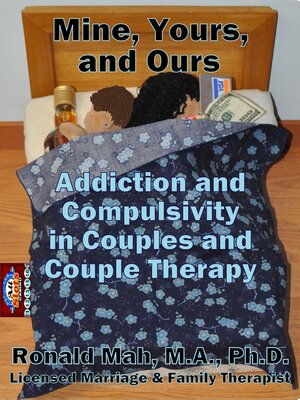Mine, Yours, and Ours, Addiction and Compulsivity in Couples and Couple Therapy
ebook ∣ Challenges in Couples and Couple Therapy · Challenges in Couples and Couple Therapy
By Ronald Mah

Sign up to save your library
With an OverDrive account, you can save your favorite libraries for at-a-glance information about availability. Find out more about OverDrive accounts.
Find this title in Libby, the library reading app by OverDrive.



Search for a digital library with this title
Title found at these libraries:
| Loading... |
"Mine, Yours, and Ours, Addiction and Compulsivity in Couples and Couple Therapy" demonstrates how the therapist who tries to choose to not work with clients or couples with addiction and compulsivity issues cannot conduct therapy with integrity. As individuals, couples, and family enter therapy, so inevitably does addiction and compulsivity, whether substances or behaviors. The book demonstrates how addiction or compulsivity may be overtly presented, alluded to, or hidden initially in therapy. Arguments about who has what addiction: "mine" or "yours," can obscure addiction or compulsivity that is shared or is "ours." Assessment for addiction and compulsivity is critical in working with couples, since addictive or compulsive elements in a couple effectively sabotage much of the "logical" work of therapy (insight work, communications training, etc.). The therapist must address addiction or compulsivity (perhaps, "first") for other processes to move forward because relationship problems and substance abuse, behavioral compulsion, or addiction are intricately intertwined. The book shows how ambiguous or confusing individual or relationship behaviors become conceptually clear when addiction is uncovered. Problems about relationship, finances, children and family, and work presented in couple therapy often have the shadow of addiction and compulsivity.
The therapist will also learn strategies and interventions to avoid therapy being stalemated by removing the necessity of the individual accepting being labeled an "addict." Co-addiction and the co-addict are examined in terms of mutual and reciprocal processes including attachment needs and family and cultural models in the system of the addictive couple. The therapist is guided to follow vague indications or probable concerns involving addiction and compulsivity, since just about anything can lead to self-medicating behaviors. The therapy can be diverted to premature and ineffective problem-solving rather than also addressing underlying causes for repeated choices and behaviors despite inevitable adverse consequences. The therapist is guided to address how a bad choice clearly identified and previously experienced has become an addictive behavior and/or a compelled choice... that is, a destructive compulsion. The role of the therapist is presented in psycho-education, as a witness, in prediction, and in relapse prevention in the process of therapy and change, along with a multi-layered intervention plan that incorporates inevitable relapse.






